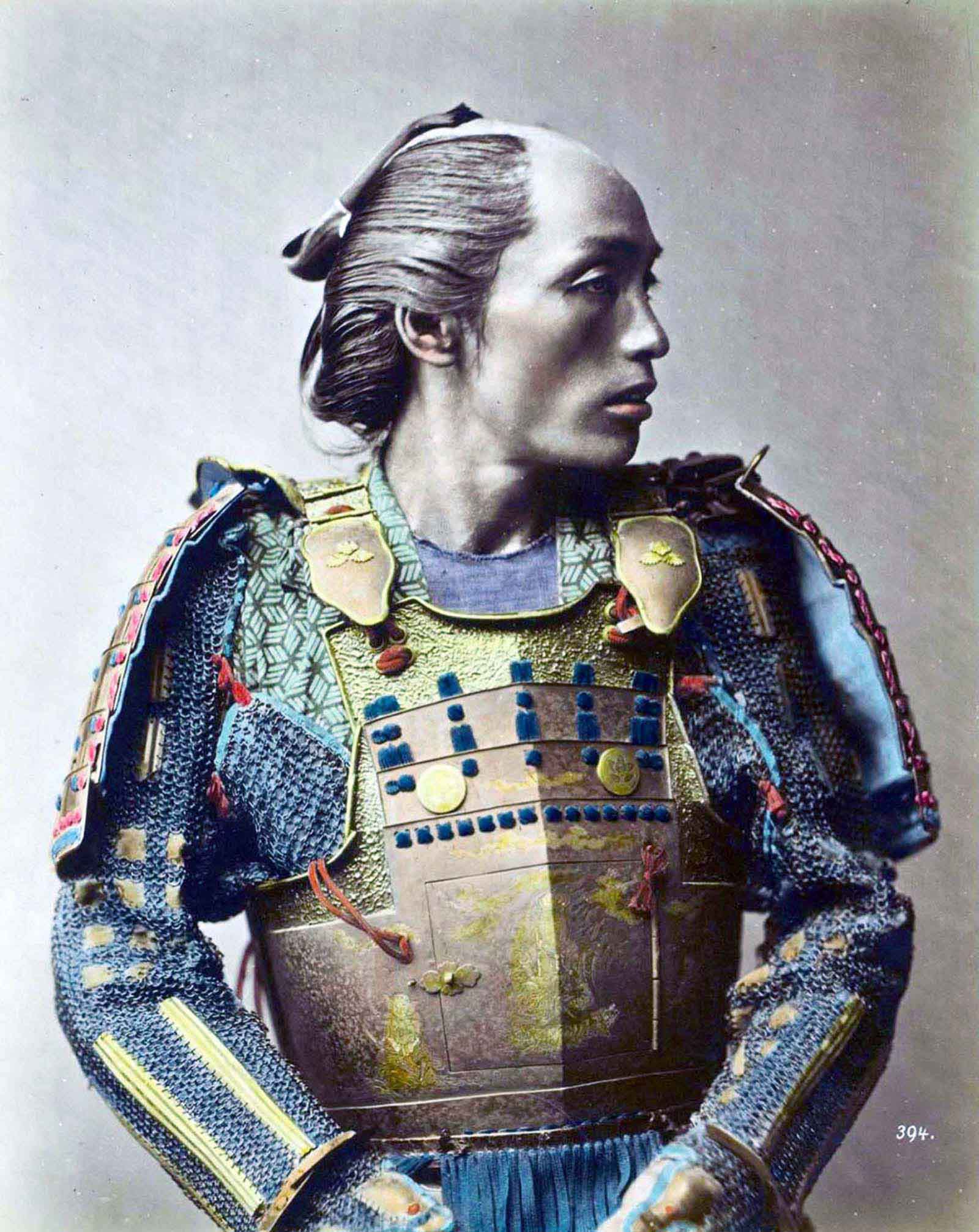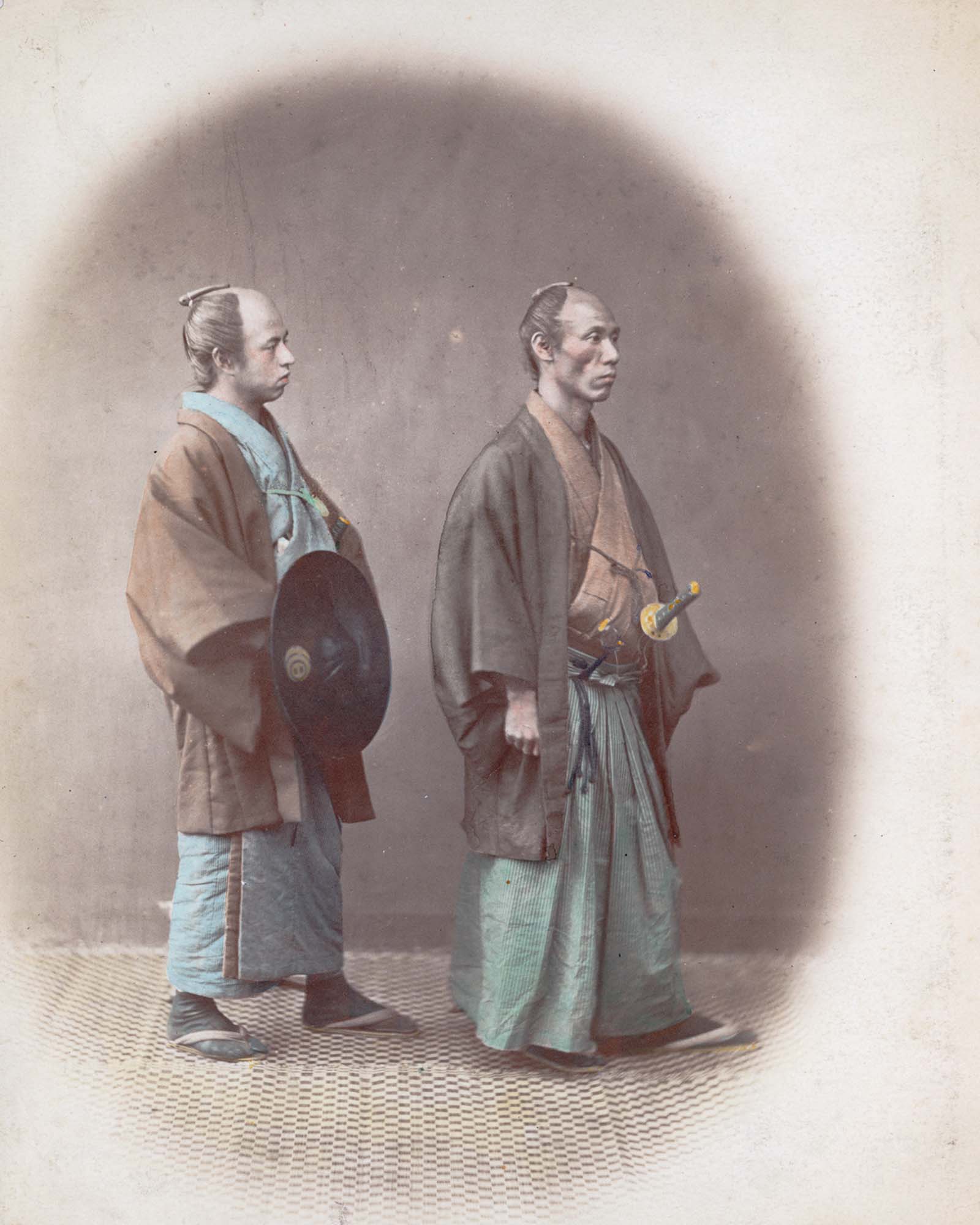The last Japanese samurai in color images, 1860-1900

Samurai were a class of people who served the elite with weapons. The term first appeared in a document from the Heian period; Before that time such people were called mono-no-fu or bushi. mono means 'object' and foo means 'man'; i.e. men who deal with things - in this case 'things' means weapons.
The word bushi means "man of arms." Another document from the Heian period listing various occupations includes bushi as well as other specialists such as men of letters, doctors, singers, dancers and others.
As several studies have pointed out, they were neither landlords nor armed farmers; He was a professional warrior from the beginning. They were well-paid retainers of the daimyo (great feudal landowners). They had high prestige and special privileges such as wearing two swords.
Samurai warriors live by bushido, a code of behavior that covers almost every area of life. Bushido demanded that a samurai show complete loyalty and obedience to his master. He should gladly face danger, even death, in the discharge of his duties.
The Hagakure, an eighteenth-century collection of writings on bushido, declares, "The way of the samurai is death ... When a samurai is constantly drawn to death, he ... dedicates his life to the service of his master. Can do."

The samurai who failed his master suffered a humiliation worse than death. There was only one way to end the humiliation. Samurai must perform seppuku, sometimes called hara-kiri or "belly sitting". In this horrifyingly painful form of suicide, the disgraced samurai used a short sword to cut off his stomach and free his soul.
Bushido demanded that samurai lead pure, simple lives. They should show dignity, respect and calm confidence. The ideal samurai knew the proper way to walk, bow down, grab his chopsticks, remove enemy heads in battle, and display them afterwards.
He knew the value of honesty. In the 1400s, the samurai chieftain Hj Soun advised, "Don't tell a word of a lie or even half of it."
Soun also advised his samurai followers to study poetry, reading and writing. "Hold literary skill in your left hand," he wrote, "martial [war-like] skill in your right hand. This is the rule of ancient times."

The samurai arranged marriages, which were arranged by going to the middle of the same or higher rank. While this was a requirement for those samurai in the upper rank (as most had few opportunities to meet women), it was a formality for lower-ranking samurai.
Most samurai married women from a samurai family, but for lower-ranking samurai, marriages with commoners were permitted. In these marriages, the dowry was brought by the woman and used to establish the couple's new home.
A samurai could take a concubine, but their background was checked by a high-ranking samurai. In many respects, taking a concubine was tantamount to marriage. The kidnapping of a concubine, although common in fiction, would have been shameful, if not criminal.
During the Tokugawa era (1603–1868), many samurai began to be more bureaucrats rather than warriors. Without any war or conflict for over a hundred years, samurai were beginning to lose their original purpose of fighting.
Eventually, Emperor Meiji removed many of the samurai's privileges during all these centuries. They were dismissed as Japan's only army and replaced by a Western-style, recruit-based army. The samurai lost many of their social prestige and the sole right to carry swords or attack commoners out of disrespect.
Many samurai joined the military or, as some literate people in Japan, became public officials, or studied abroad and became the academic elite. However, after the end of the Meiji Restoration, the samurai had officially fallen and no longer exclusively controlled the military and political landscape of Japan.




No comments: